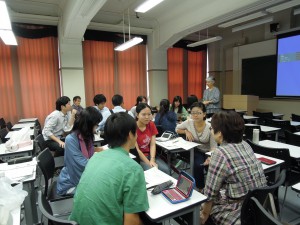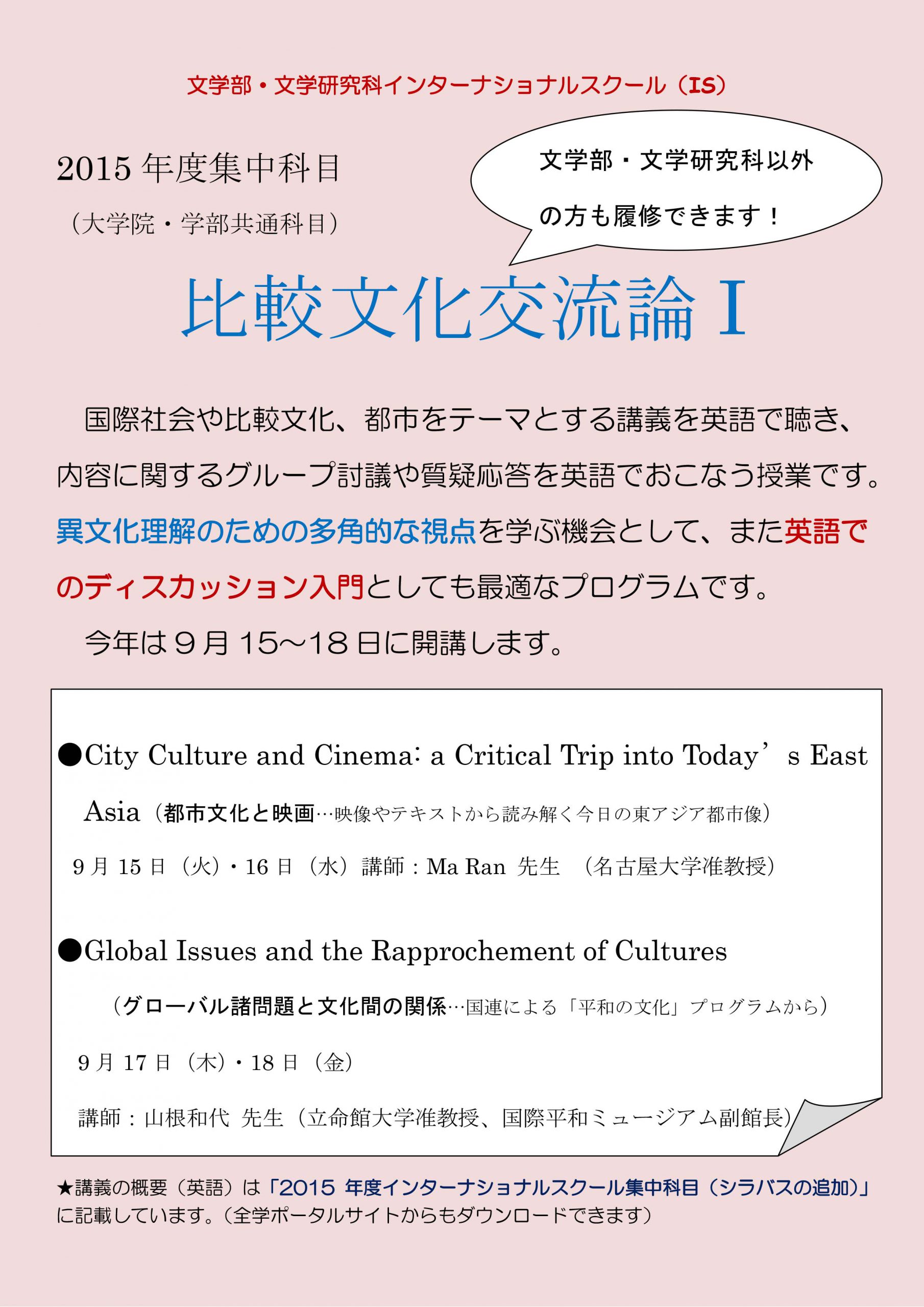インターナショナルスクール集中科目(学部と前期博士課程の共通科目)は、国際社会や比較文化・都市をテーマとする講義を英語で聴き、内容に関するグループ討議や質疑応答を英語でおこなう授業です。異文化理解のための多角的な視点を学ぶ機会として、また英語でのディスカッションを経験する場として、最適なプログラムです。今年度は「国際都市社会論II」として、以下の内容で開講されます。講義資料等は、当日配布します。
対象:学部2~4年、前期博士課程(文学部・文学研究科以外も履修可能)
講師: Langley, Raymond(大分大学福祉健康科学部准教授)
講義名:International cities and cultures II
期間:9月24日(2~4限)、25日(2~4限)、28日(2~4限)、29日(2~4限)、30日(2~3限)
- Objective of the course
In this class, we will study the interaction between culture and psychology. This course will explore how we can better understand human behavior, thought, and feeling by taking into account the role of culture, a perspective gaining popularity in the 21st century. We will look at various topics currently under discussion in this field, as well as methodologies to analyse psychological matters in relation to culture.
- Goal
Students are expected to be able to evaluate basic issues discussed in cultural psychology, and gain knowledge on research methods, and to apply skills and knowledge to various phenomena in the daily life.
3.Weekly plan
Week 1: Overview of the relationship between psychology and culture
Week 2: Cultural psychology research methods
Week 3: Cultural psychology and replication issues
Week 4: Culture and self-construal
Week 5: Culture and attribution, the fundamental attribution error, locus of control
Week 6: Culture, perception, and cognition
Week 7: The relation between language, culture, and thought: The Sapir-Whorf hypothesis
Week 8: Bilingualism and Translation (1): linguistic competence
Week 9: Bilingualism Translation: cultural influence
Week 10: Prejudice
Week 11: Overcoming Prejudice
Week 12: Helping Behavior
Week 13: Cultural Neuroscience
Week 14: Intercultural Communication
Week 15: Summary of the course
- Preparation and review for each class
Students are advised to read relevant materials prior to each meeting, and think how topics dealt with in the class can be applied to our verbal and cultural activities in our daily life.
- Evaluation methods
Essays (80%), class participation (20%)
- Comments for students (raising awareness to particulars that you wish to address)
Topics covered in this course can be found in our daily life, and in addition to lectures and academic readings, I would like for the students to reflect upon and discuss their own experiences with different cultures and languages.
- Text books and other materials
References:
People: Psychology from a Cultural Perspective. Matsumoto, David. Brooms/Cole, 1994
Culture and Psychology. Matsumoto, David and Juang, Linda. Australia: Wadsworth, Cengage Learning, 2013
文化心理学〈上〉心がつくる文化、文化がつくる心 (心理学の世界 専門編)、増田貴彦、山岸俊男、2010.
(Additional materials will be provided during the class.)






